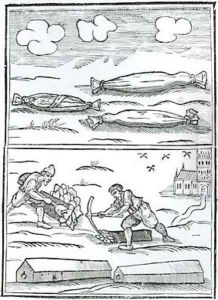Lilly, William Paintings
William Lilly, born on May 1, 1602, in Diseworth, Leicestershire, England, was not an artist in the conventional sense, but rather a renowned astrologer of his time. He is most famous for his work in horary astrology, the practice of using horoscopes to answer specific questions. Lilly's influence on the field of astrology was substantial, with his best-known work being 'Christian Astrology,' a comprehensive textbook on horary astrology published in 1647.
Lilly's early life was relatively modest; he was born to a farming family. After receiving a basic education, he first worked as a servant before pursuing studies in philosophy and astrology. His passion for the stars and their supposed influence on human affairs drove him to become a prominent figure in the astrological community of 17th-century London. His almanacs and prognostications were widely popular, and he developed a following among those who sought to understand or perhaps even influence their fate and fortunes through the stars.
During the English Civil War, Lilly's predictions were followed by both Royalists and Parliamentarians, as he was believed to have predicted the outbreak of the war. His role as an astrologer placed him in a unique position within society, operating within the intersections of science, magic, and politics. Lilly was also a key figure in the lead-up to the Great Fire of London in 1666; an image in his 1651 almanac was later thought to have predicted the disaster, although he denied any such intention.
Lilly's death on June 9, 1681, marked the end of an era for astrology in England. His legacy endured, and his methods and teachings would influence generations of astrologers. Despite the decline in the academic reputation of astrology that followed the scientific revolution and the Age of Enlightenment, Lilly's 'Christian Astrology' remains a seminal work for those interested in traditional astrological practices.
